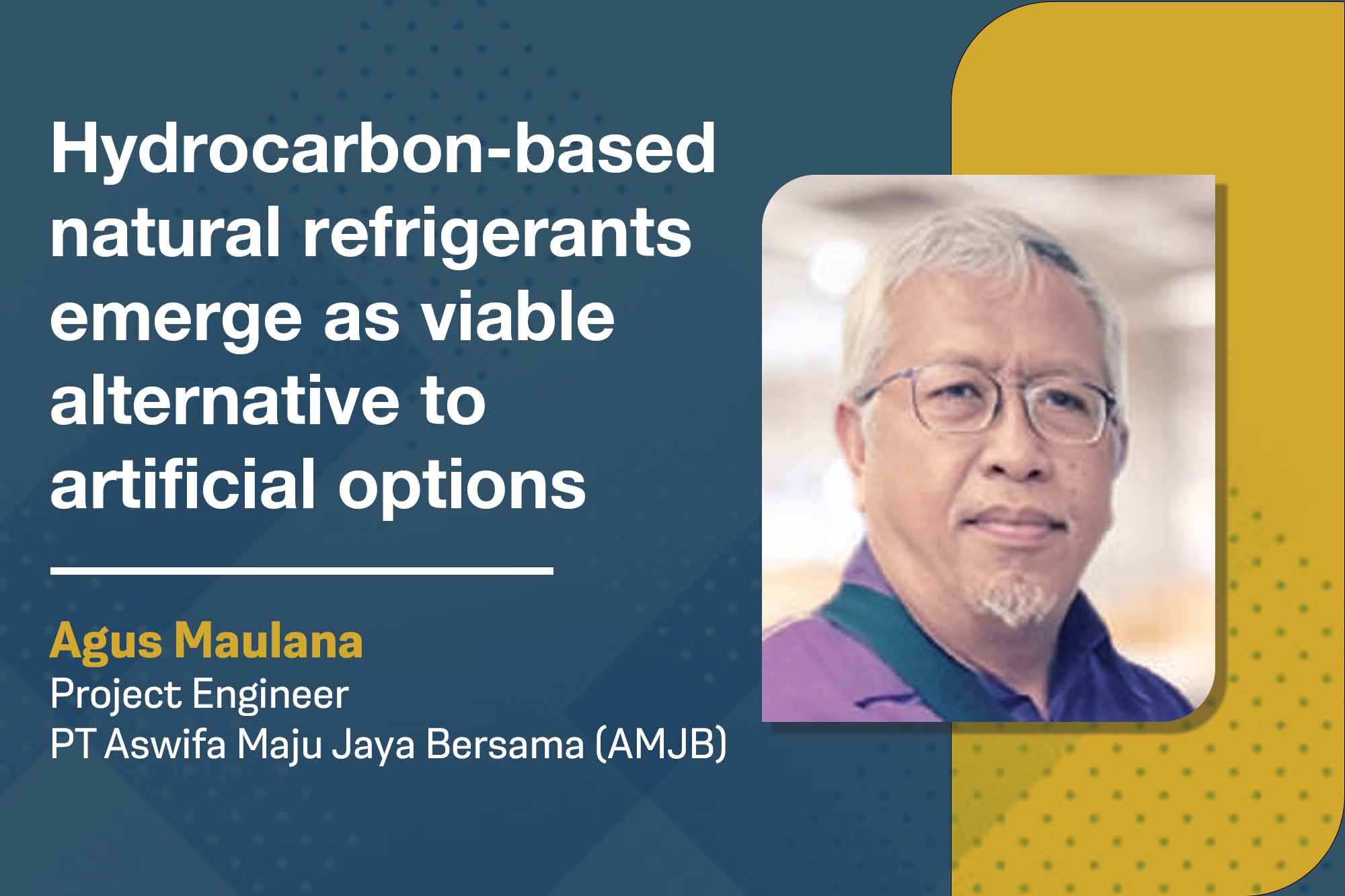Agus Maulana, Project Engineer, PT AMJB, emphasises the importance of saving electricity and achieving cost savings on air conditioning and heating units. He also highlights the potential for trading greenhouse gas emission materials within the refrigerant sector, particularly in refrigerant conversion and retrofitting.
What roles do low GWP and hydrocarbon refrigerants play in addressing the challenge of rising global temperatures?
The primary objective of opting for low Global Warming Potential (GWP) artificial refrigerants is to mitigate the release of greenhouse gas emissions, thus curbing the rise in global temperatures. On the other hand, within the category of natural refrigerants, hydrocarbon refrigerants exhibit low GWP values. This makes them a direct solution for reducing global temperatures. The distinction lies in the approach, as low GWP refrigerants address the issue of greenhouse gas reduction. In contrast, hydrocarbon refrigerants within the natural group offer a direct means to lower global temperatures.
How do you view natural refrigeration technologies shaping up in refrigeration systems?
I am positive about the role of natural refrigeration technologies in shaping the future of refrigeration systems, especially when these systems adhere to the vapour compression cycle. Natural refrigerants, particularly those based on hydrocarbons, appear to be the only viable replacement for artificial refrigerants.
Please elaborate on regulatory standards and global initiatives to promote the adoption of GWP refrigerants.
Regulatory standards and worldwide initiatives are crucial in encouraging the adoption of low Global Warming Potential (GWP) refrigerants. Artificial refrigerants with low GWP often possess flammable characteristics. Therefore, it is imperative to conduct technical training for refrigeration and air conditioning technicians, ensuring they are well-versed in properly using these materials and can prioritise safety. This becomes especially important as they transition from traditional refrigerant materials to alternatives with lower environmental impact.
Please talk about replacing low-GWP refrigerants in existing refrigeration systems.
Utilising various low Global Warming Potential (GWP) artificial refrigerant materials requires a transition in new products to avoid elevating GWP levels. This shift necessitates the creation of entirely new systems rather than retrofitting existing ones. In contrast, natural refrigerants with extremely low GWP values allow for retrofitting, enabling the replacement of high GWP artificial refrigerants with drop-in substitutes. A practical example is the replacement of R-134a with R-600a in refrigerators, demonstrating the feasibility of such substitutions. This retrofitting approach can be extended to other pre-existing refrigeration and air conditioning systems.
How do international regulations impact the use of refrigerants?
Certainly, a significant contributor to global warming is the extensive use of artificial refrigerants with exceedingly high Global Warming Potential (GWP) indices, which persist in some countries without a ban. Therefore, it is imperative to expedite the prohibition of refrigerant materials that continue contributing to global temperatures’ rise.
What are the opportunities for implementing ammonia refrigeration systems in the F&B industry?
There is optimism and favourable potential, given that ammonia (NH3) is also a natural refrigerant.NH3 refrigerant is characterised by its high toxicity, necessitating the implementation of safety measures in the event of a cooling system leak. NH3 refrigerant material offers an environmental advantage, as it does not contribute to carbon footprints in the atmosphere in the event of a leakage. Additionally, NH3 refrigerants can generate and maintain precise temperatures.
Cookie Consent
We use cookies to personalize your experience. By continuing to visit this website you agree to our Terms & Conditions, Privacy Policy and Cookie Policy.













